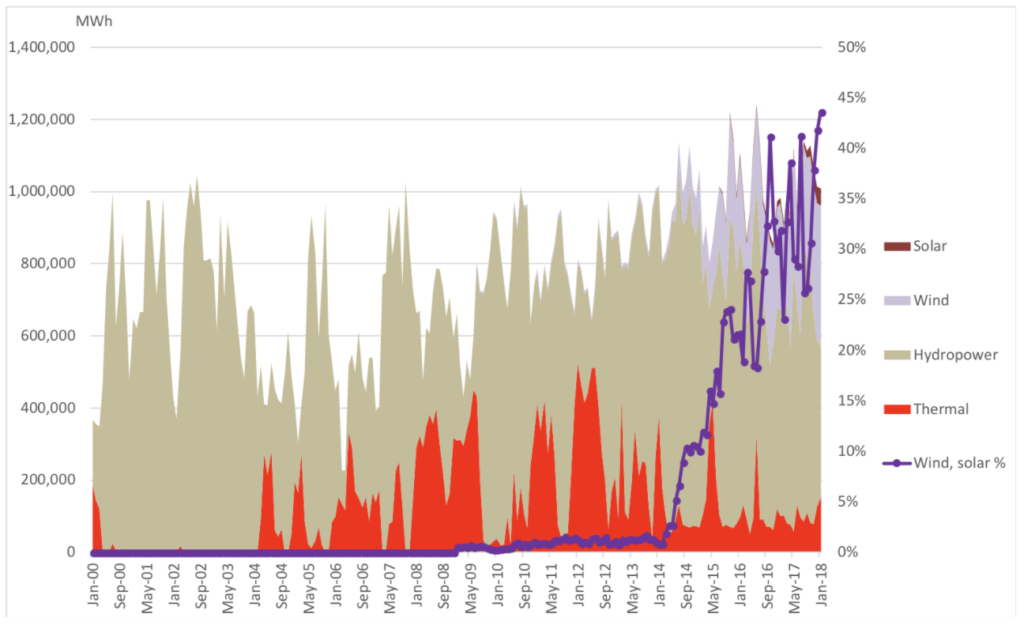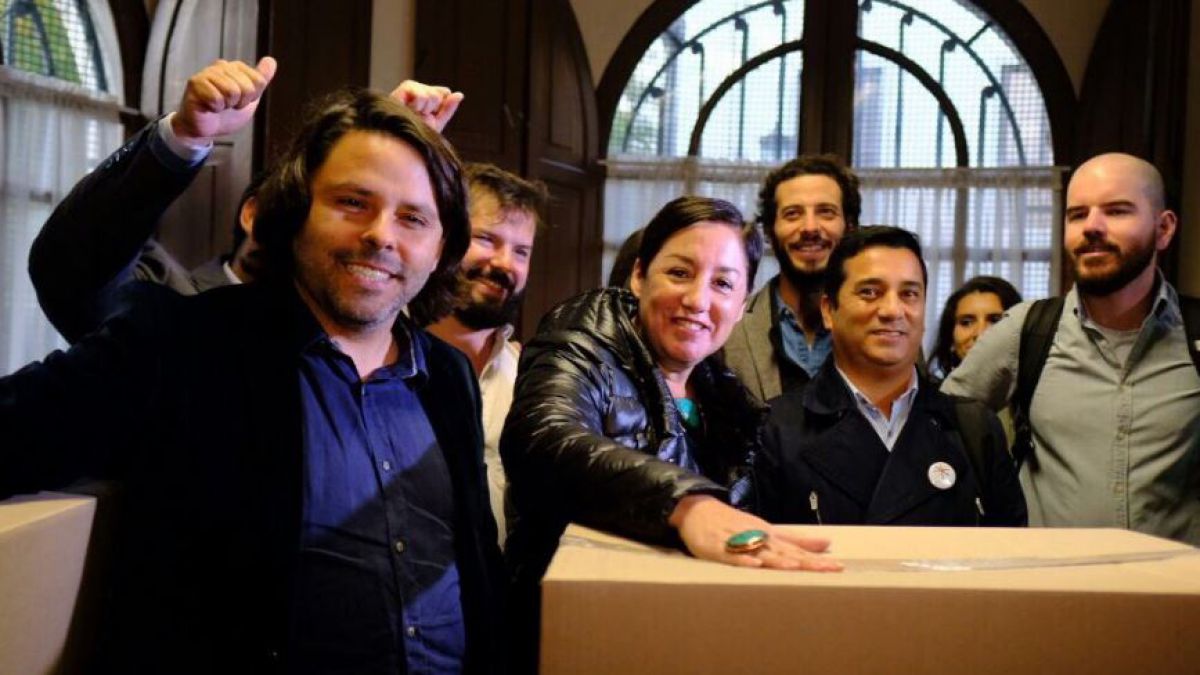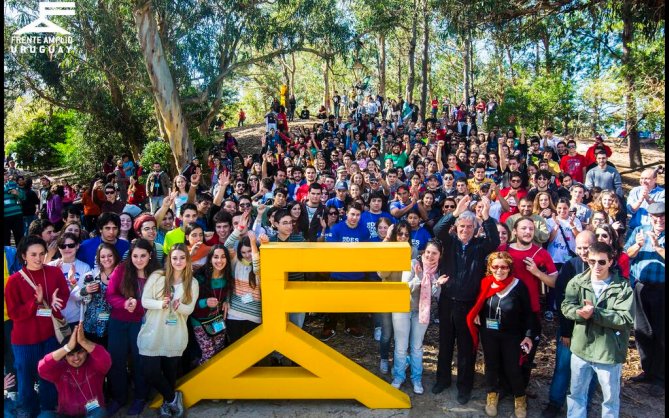
This is Part 14 in a series about Radical Municipalism looking at ways people worldwide are organizing in their cities to build power from the bottom up. Read Part 1 (Brazil) Part 2 (Rojava), Part 3 (Chiapas), Part 4 (Warsaw), Part 5 (Bologna), Part 6 (Jackson, Miss.), Part 7(Athens) and Part 8 (Warsaw & New York), Part 9 (Reykjavík), Part 10 (Rosario, Argentina), Part 11 (Newham, U.K.), Part 12 (Valparaiso, Chile), and Part 13 (Porto Alegre, Brazil).
In Uruguay's capital, Montevideo, the city council guarantees the right to housing. Few cities anywhere in the world can make this claim. And Uruguay was under a brutal dictatorship as recently as 1985.
Life expectancy in Uruguay is 77 years; it may soon overtake the United States where life expectancy averages 79. Uruguay has universal healthcare and one doctor per 270 people, compared to 1 to 390 in the U.S. Also unlike the U.S., the small South American country is considered one of the world's 20 "full democracies," according to The Economist's global rankings.
That's not all. Uruguay outstrips the U.S. in its use of renewable energy, currently producing almost all of its electricity needs from clean power sources. That compares to a world average of one-fifth use of renewables.
But Uruguay is in some ways fighting an uphill battle. It is wedged between Argentina and Brazil, two giant South American neighbors where rightwing governments have taken over from the leftwing politics that dominated the early 21st century across the region. Uruguay remains the exception: Its leftwing government is still in power.
One of the key reasons for this is the counter-power demonstrated by the well-organized bottom-up movements within the country. Across South America, radical municipalism played a key role in generating and sustaining the Pink Tide across the continent. It has also evolved to help overcome that movement's failings (see parts 1, 10, 12 and 13).
Progressive Tactics: A Short History of Frente Amplio
The party Frente Amplio (Broad Front) has led the nation since 2005, and is renowned continentally and worldwide with policies that include legalizing marijuana, abortion and gay marriage. Water and sanitation are recognized in Uruguay as a human right. Minimum wage has risen more than two-fold. By 2009, every schoolchild was given a laptop.
Yet despite the advances, Uruguay is no utopia. Montevideo has homelessness and poverty like every other capital. But its citizens' right to housing has been secured by its active housing cooperative movement, which has in turn pushed Frente Amplio to implement radical change. Sometimes understated, Uruguay's bottom-up demonstration of power helps explain both the country's radical past and its upward trajectory today.
Uruguay and Frente Amplio's progressive story is often told through its recent President José "Pepe" Mujica, who served from 2010 to 2015. Admired as the "poorest president in the world," Mujica walked the talk about socially progressive policies. As an armed anti-capitalist guerilla during the dictatorship, he was imprisoned and tortured. As president, he gave away the presidential palace for use by refugees, donated most of his earnings to single mothers, drove an old Beetle and lived in a small house. Yet the foundations of Uruguayan progressive politics began far earlier.
Colonialism decimated Uruguay's indigenous peoples to an extreme degree even by western hemisphere standards. As a result, its population mainly descends from southern European migrants. In the 19th century, warlords ruled.
But in 1903, everything changed. José Batlle y Ordóñez became president and led a transformative egalitarian revolution that included free healthcare and education, taxation on landowners, strong unions and a constitution that empowered women and the working class. This world-leading socialism went beyond the president, as strong unions and a feminist movement based in bottom-up anarchist thinking played crucial roles as well.
Based on its strong social and legal foundations, Uruguay prospered for the first half of the 20th century, so much that it became known as "South America's Switzerland." Then, an economic crisis in the 1950s driven by global factors caused inequality to spiral, leading to social tensions. Using Robin Hood-like tactics, violent Tupamaro guerrillas fought against growing injustice, among them a young Mujica. Many were killed and captured by the army. In a coup in 1973, a brutal dictatorship representing landowners took power.
General strikes helped end the dictatorship in 1985. The Tupamaro joined socialists, left-leaning Christians and Communists to form the Broad Front. Trade unions were key, bringing their legacy of collective organizing into the movement. The party's second president, Mujica is often mythologized for his past words and deeds, not least blasting capitalism and consumerism on the international stage.
Critics in turn point out that he has done deals with capitalists, leading to intense debates about whether he was exercising pragmatism or selling out. But one thing even Mujica's critics can admit is how he has maintained respect for the most marginalized Uruguayans.
Importantly, despite the way it's often told in HIStory, one man seldom changes the world. This is shown clearly in Montevideo's successful fight for fair housing.
Fight for Your Housing Rights
Last year, Montevideo's Mayor Daniel Martinez strengthened the city's ties to the housing movement that has been active for 50 years and affirmed the right to housing. In practical terms, this meant that the Frente Amplio-led city increased its commitment to a cartera de tierras (land bank).
Land banks are a form of municipal administration that recycles unused land within the city, giving it to residents through cooperatives in Montevideo. They also assist with finance. Even before the sub-prime crisis devastated U.S. cities, land-banks were active in places falling to ruin after their capitalist heydays.
The housing cooperatives in Montevideo and Uruguay are participatory, democratic and inclusive for anyone who needs housing. Currently, 25,000 families are organized into 560 cooperatives through the Uruguayan Federation of Mutual-Aid Housing Cooperatives (FUCVAM). It views housing as a commons, not a private right. The federation finds unused land and builds homes through collective work supported by the government. Last year, FUCVAM received grants to build 409 homes for 11 cooperatives in Montevideo and nationally.
This doesn't mean that Frente Amplio, which has governed the city and the country, deserves all the credit. To the contrary, in 2007, two years after the party rose to government, it found itself in direct conflict with FUCVAM. The housing cooperative occupied buildings in direct action against the bureaucracy in support of co-ops. Frente Amplio voted in the parliament to have the occupiers put in prison.
People Power Unlocks Social Change
To Frente Amplio's credit, the cooperative movement's fight ultimately pressured the party at city council and higher government levels to support cooperative housing. More broadly, Frente Amplio has continued to implement radical social change nationally through healthcare investment, providing laptops for each child, a renewables revolution and other progressive measures.
At the city level, Montevideo's city council supports vulnerable and neglected individuals by providing training, support and incubation to small enterprises for people in need of assistance. One recipient, a former Guantánamo inmate from Syria named Ahmed Ahjam, recently opened a bakery as a result.
Uruguay's next elections are in 2019. To keep the Pink Tide rising, and to avoid some of the mistakes and failures of the countries around it, learning from struggles like the kind led by the housing cooperatives will be essential.
Read Part 1 (Brazil) Part 2 (Rojava), Part 3 (Chiapas), Part 4 (Warsaw), Part 5 (Bologna), Part 6 (Jackson, Miss.), Part 7(Athens) and Part 8 (Warsaw & New York), Part 9 (Reykjavík), Part 10 (Rosario, Argentina), Part 11 (Newham, U.K.), Part 12 (Valparaiso, Chile), and Part 13 (Porto Alegre, Brazil)
















